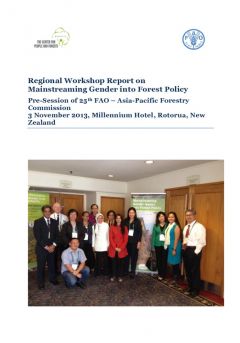Focal point
Location
The Food and Agriculture Organization of the United Nations leads international efforts to defeat hunger. Serving both developed and developing countries, FAO acts as a neutral forum where all nations meet as equals to negotiate agreements and debate policy. FAO is also a source of knowledge and information. We help developing countries and countries in transition modernize and improve agriculture, forestry and fisheries practices and ensure good nutrition for all. Since our founding in 1945, we have focused special attention on developing rural areas, home to 70 percent of the world's poor and hungry people.
Members:
Resources
Displaying 586 - 590 of 5073Le Développement de l'Horticulture Urbaine et Péri-urbaine en Afrique Centrale
En 2014, la FAO a mis en place le projet GCP/SFC/001/MUL ‘La sécurité alimentaire renforcée en milieu urbain en Afrique Centrale grâce à une meilleure disponibilité de la nourriture produite localement’’’. Pendant 3 ans, le projet a apporté un soutien matériel et des formations à plus de 3 500 bénéficiaires situés au Gabon, Cameroun, Tchad, Guinée Equatoriale, Sao Tomé & Principe, et République du Congo.
Brevetto Suolo
I Brevetti delle Nazioni Unite sono stati sviluppati allo scopo di sensibilizzare, educare e soprattutto motivare i giovani a modificare i loro comportamenti e a diventare protagonisti attivi del cambiamento nella propria comunità. I Brevetti possono essere usati per lezioni scolastiche, attività di gruppi giovanili e sono promossi da WAGGGS e WOSM. Comprendono diversi tipi di attività e idee che possono essere utilizzate facilmente da insegnanti e capigruppo.
Barbados and FAO
For 40 years, FAO has been an important partner in Barbados’ drive to achieve its agricultural and rural development
priorities, including natural resource management and climate change adaptation. During this time, FAO has providedcritical technical and financial support, and mobilized international partners in the process. Key outcomes include theimplementation of policies leading to improvements in the crop, livestock, fisheries and forestry sectors, as well asstrengthened food security and safety.Regional Workshop Report on mainstreaming gender into forest policy
Within the context of RECOFTC’s overall goal to strengthen rights, improve governance and ensure equitable benefits to forest dependent men, women and other excluded groups, RECOFTC has been implementing a Food and Agriculture Organization of the United Nations Regional Office for Asia and the Pacific (FAO-RAP) funded project entitled “Mainstreaming Gender into Forest Policies”.
VGGT: OECD-FAO Guidance for Responsible Agricultural Supply Chains
Enterprises involved in agricultural supply chains can create employment, raise labour standards and bring the technology to increase agricultural production or reduce pollution. But their activities can also contribute to food insecurity by leading to the eviction of local communities from their lands. Child labour and abuses of migrant workers and women are regularly reported. The production of some agricultural commodities leads to soil degradation, water resource depletion and deforestation.











